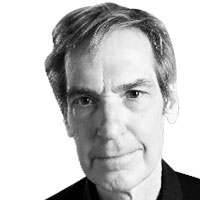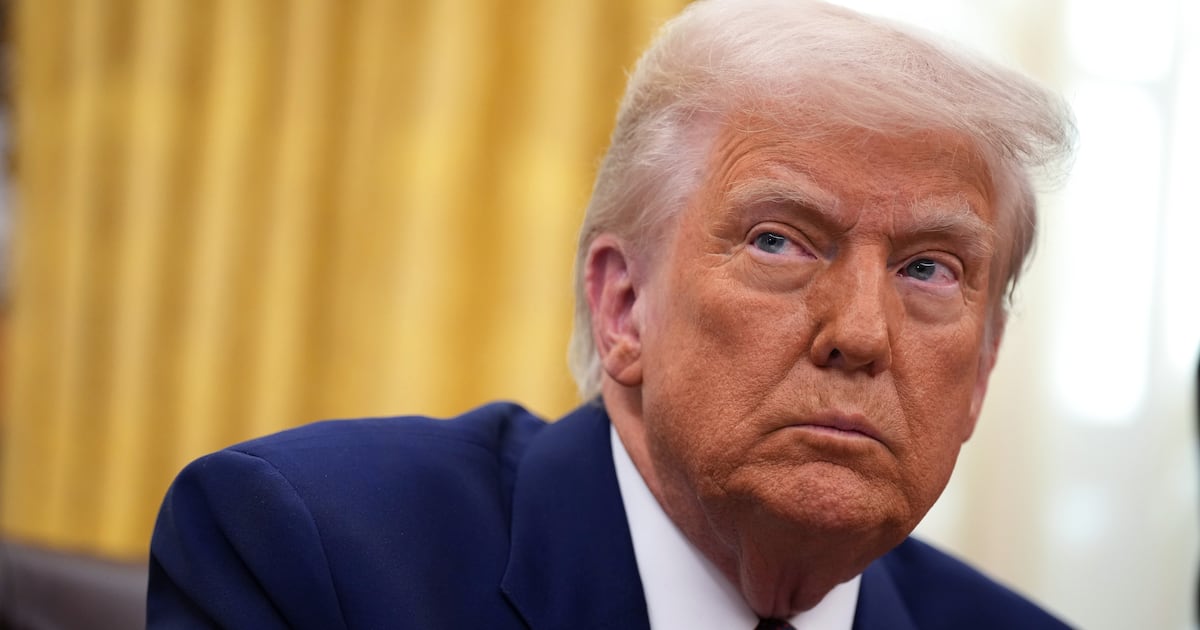It’s been bothering me ever since the lies started to pile up on the White House lawn: This guy Trump reminds me of someone.
Nixon? Well, obviously.
Frank Sinatra? A little because they’re both men whose swagger seems born of insecurity.
John Gotti? Closer because, like Trump, Gotti was a big-bellied Queens boy determined to make it in Manhattan. And Gotti’s gaudy fashion sense and unseemly business practices ensured that—like Trump—he’d always been an outsider.
But as the dissembling presidential tweets grew increasingly desperate, it hit me: Trump reminds me of another unsavory New Yorker who was hyped by the press: Charles “Lucky” Luciano, who is credited—if that’s the right word—as the inventor of the modern America Mafia. The similarities between the two men have been lurking in my unconscious mind because I spent the better part of a year working on a TV series that chronicled Luciano’s rise and fall.
Like Trump, Luciano was hailed as a business genius. “He modernized the Mafia, shaping it into a smoothly run national crime syndicate focused on the bottom line,” Time magazine kvelled when it named Luciano one of the 100 most influential “persons of the century.” This is the same publication that reported in a l989 cover story, “Whatever Donald does is absolutely designed to serve his self-interest.” Which, come to think of it, is also a good description of Luciano’s philosophy of life.
But like Trump, Luciano—despite his reputation for organizational brilliance—actually screwed up a lot.
While still a teenager, Luciano was arrested for selling heroin; in 1936, he was sentenced to prison for 30 to 50 years for organizing New York City’s brothels. Then, in 1947—one year after his sentence was commuted and he had been deported to Italy—Luciano foolishly thought he could hide out in Cuba, as if the most notorious criminal in the world could go unnoticed on a small island that was then filled with American tourists. These are hardly the actions of a criminal mastermind.
As for Trump’s screw-ups, well, there’s no point in belaboring the obvious.
Luciano also shared another important trait with the current president: he lied a lot.
When Luciano was cross-examined—and demolished—by then-prosecutor Thomas E. Dewey, who eventually nailed Luciano on “compulsory prostitution” charges, the mobster couldn’t stop making stuff up. He said he was born “on 13th Street” in New York when it was easily proven that he was born in Sicily. He claimed he’d never worked with Al Capone and other underworld types who were all known associates of his. When Dewey produced phone records of calls between Lucky’s Waldorf hotel suite and these same notorious characters, Luciano lamely said that someone else must have been using his phone. Asked about the time he was caught with a shotgun, two revolvers, and 45 rounds of ammunition, Luciano swore the weapons were for bird hunting. What kind of birds? Dewey asked. “Peasants,” Luciano said, causing the courtroom to erupt in derisive laughter.
Luciano is actually one of the few men about whom it can be said: He lied as often as President Trump. But it goes deeper than that: Trump seems to share Luciano’s naïve thug’s notion that his instinctive predatory mind can outsmart anyone. Yet when Luciano took the stand, he couldn’t outsmart Thomas Dewey any more than Trump can now outsmart the likes of James Comey.
A court-ordered psychological profile of Luciano reads eerily like an analysis of the man currently entrusted with the nuclear codes:
“He possesses average intelligence, but is a shallow and parasitic individual who is considerably wrapped up in his own feelings. His ideals of life resolved themselves into money to spend, beautiful women to enjoy, silk underclothes, and places to go in style. His social outlook is essentially childish, in that it is dominated by recklessness and a craving for action. His only asset as a leader consists of his apparent calmness in times of stress. This characteristic, which appears to be based on his feeling that he could escape involvement, has passed for reserve and strength … He manifests a peasant-like faith in chance, and has developed an attitude of nonchalance. His behavior patterns are essentially instinctive and primitive, his manner easy, copious, and ingratiating.”
Remind you of anybody?
There’s also this: Both fellows—or should I say goodfellas?—owe part of their legend to books attributed to them, though each man is innocent of having written his book. In Trump’s case, The Art of the Deal was famously cobbled together by Tony Schwartz, who channeled Trump’s voice by hanging out at The Donald’s office and listening to his phone calls. Luciano’s legacy, such as it is, is based largely on The Last Testament of Lucky Luciano, a uniformly discredited work that purports to be the product of extensive interviews with Luciano, though the book’s authors never produced the tapes.
Had Luciano, who died in l962, lived to see his secret sharer in the White House, he would doubtless have been pleased to have as his president a man who echoed the gangster’s own view that the “American press is disgraceful. There’s too much freedom of the press in America.”
Finally, if Trump is ever caught in a lie while under oath, he might try the excuse that Luciano used in court. “I didn’t say I told the truth all the time,” Lucky told Thomas Dewey, “but now I am telling the truth.”
We may console ourselves with the knowledge that the pathetic line did not work then and likely won’t work now.






